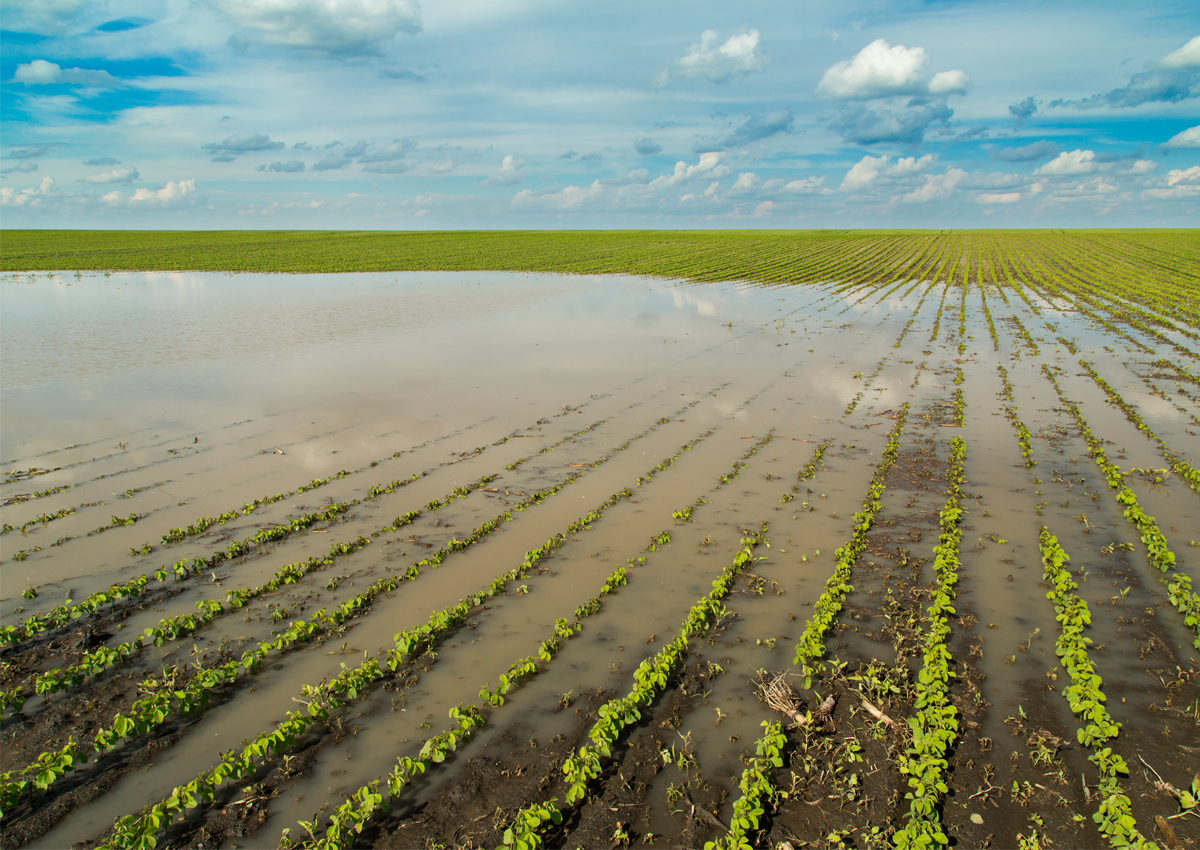
Utrecht Biologists Discover A Way to Make Plants Flood Tolerant
September 11, 2019| |
Global warming has resulted not only in increased incidences of drought and heatwaves but also increased rainfall which brings higher flood risk. Flooding is a major problem for crops as too much water deprives them of oxygen and suffocates them. Scientists at Utrecht University have discovered how some plants quickly detect being underwater when flooded, and how these plants initiate processes that prevent them from drowning.
The scientists found that plants use the hormone ethylene as a signal to trigger underwater survival reactions. According to the study, ethylene accumulation in flooded plants triggers a survival response at an early stage, even before the oxygen levels drop.
Sjon Hartman, a plant biologist at the Plant Ecophysiology group at Utrecht University said, "A plant that goes into survival mode early can last longer underwater and that can make the difference between life and death." Research leaders Dr. Rashmi Sasidharan and Prof. Rens Voesenek said their discovery holds great potential for the future development of flood-tolerant crops. "Now that we know the genes associated with flooding survival, we can introduce them back into plants that lack them and thus program flooded plants to go into survival mode sooner," they added.
For more details, read the news article at Utrecht University website.
| |
You might also like:
- Scientists Discover Gene that Confers Flood Tolerance, Drought Tolerance, and Disease Resistance in Rice
- Flood-tolerant Rice Plants Can Also Survive Drought
- ISAAA Pocket K No. 43: Biotechnology and Climate Change
Biotech Updates is a weekly newsletter of ISAAA, a not-for-profit organization. It is distributed for free to over 22,000 subscribers worldwide to inform them about the key developments in biosciences, especially in biotechnology. Your support will help us in our mission to feed the world with knowledge. You can help by donating as little as $10.
-
See more articles:
-
News from Around the World
- GM Crop Planting Increased ~113-fold Since 1996
- Burkinabe's National Biosafety Laboratory Opened
- Students Concerned about Future of Biotech Innovations in Uganda
- Discovery of Genes Could Help Reduce Fertilizer Pollution in Waterways
- Plant Enzyme Could Guide Development of Medicines and Other Products
- Half of Australians Give ‘Conditional Support' to GM foods, Study Reveals
- Utrecht Biologists Discover A Way to Make Plants Flood Tolerant
-
Research Highlights
- First Pea Genome to Help Improve Future Crops
- Scientists Investigate Grapevine's Population Genetics Using Structural Variants
-
Plant
- Use of CRISPR-Cas9 Revealed OsCAF1 Influences Chloroplast Development in Rice
-
Read the latest: - Biotech Updates (February 11, 2026)
- Gene Editing Supplement (January 28, 2026)
- Gene Drive Supplement (February 22, 2023)
-
Subscribe to BU: - Share
- Tweet

